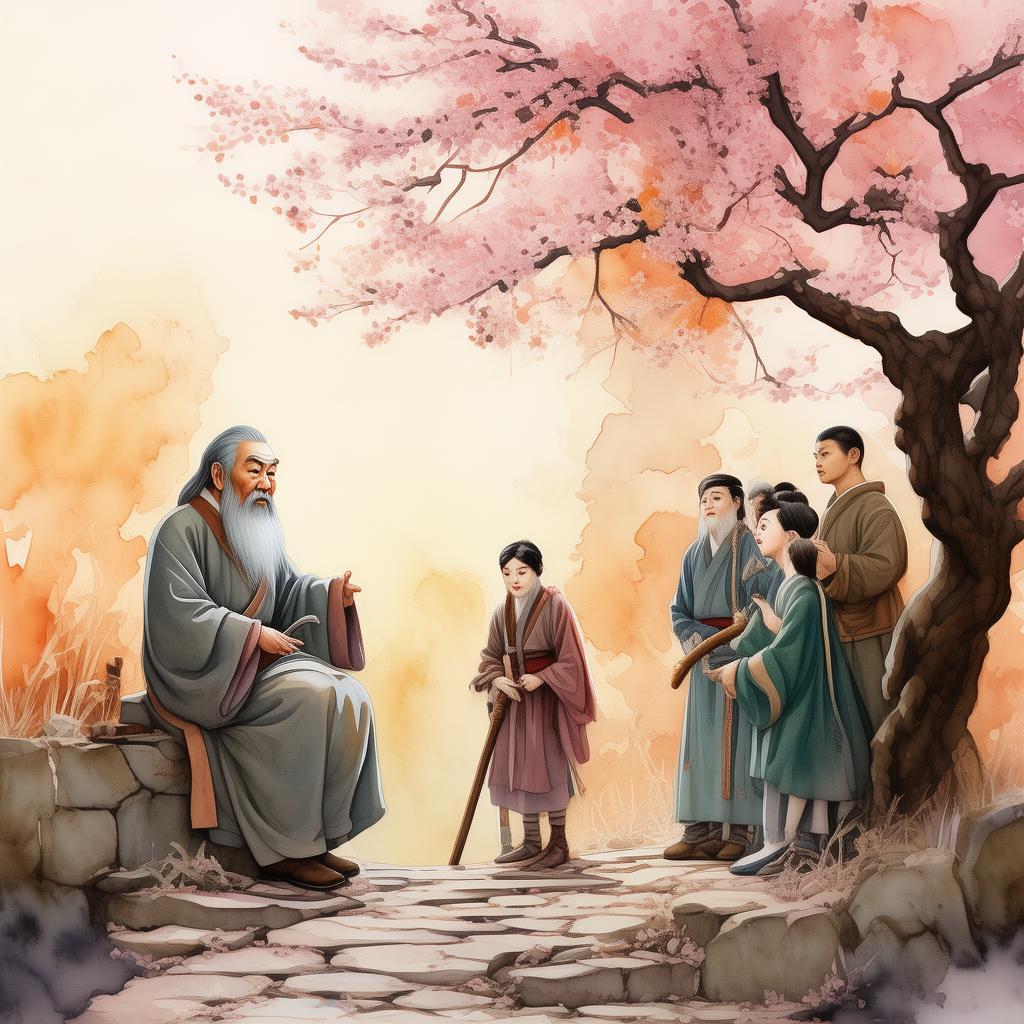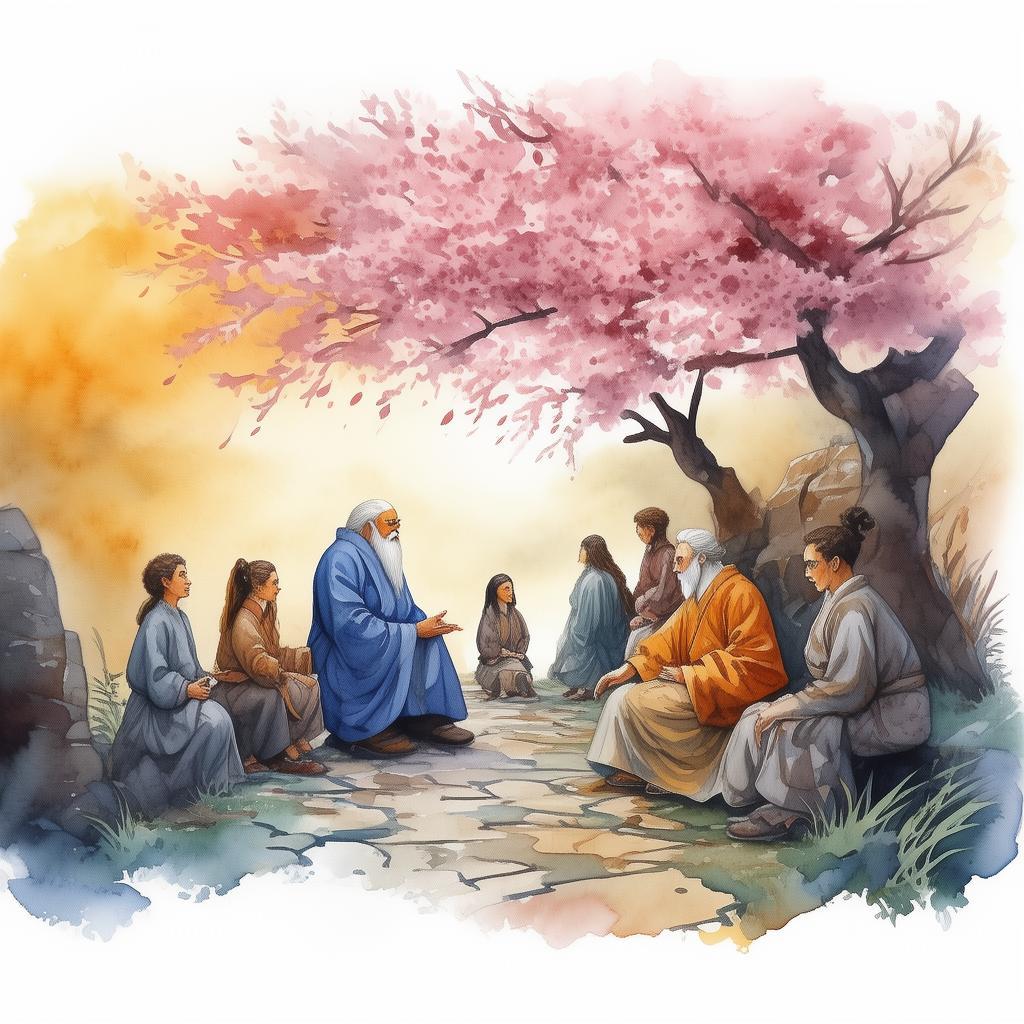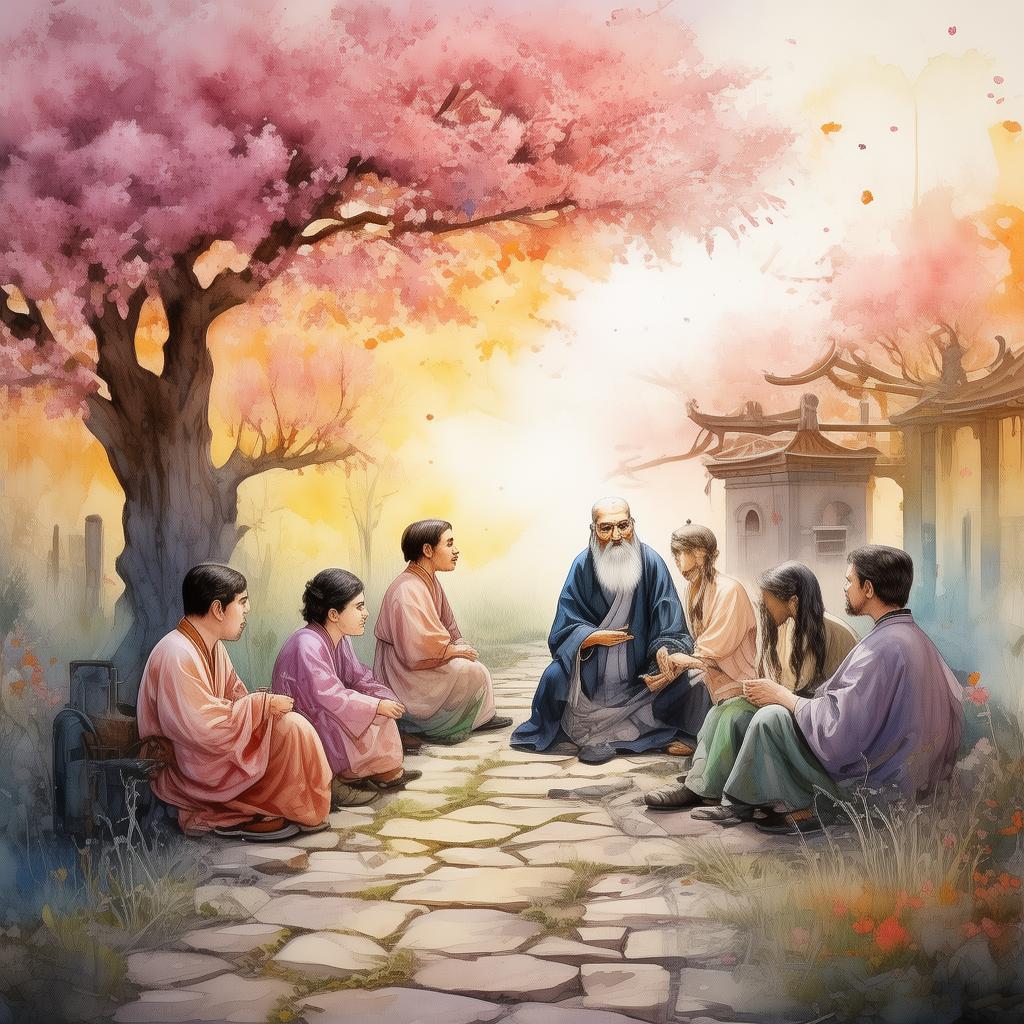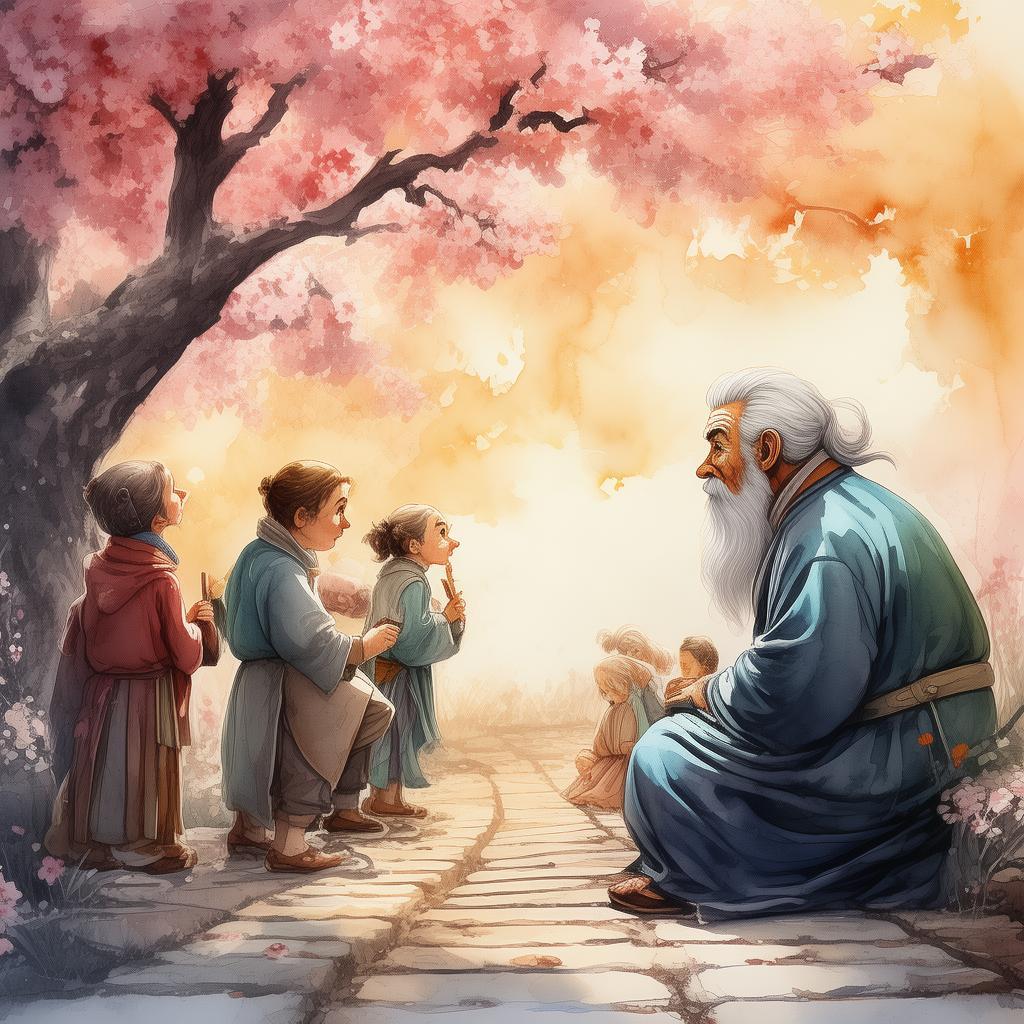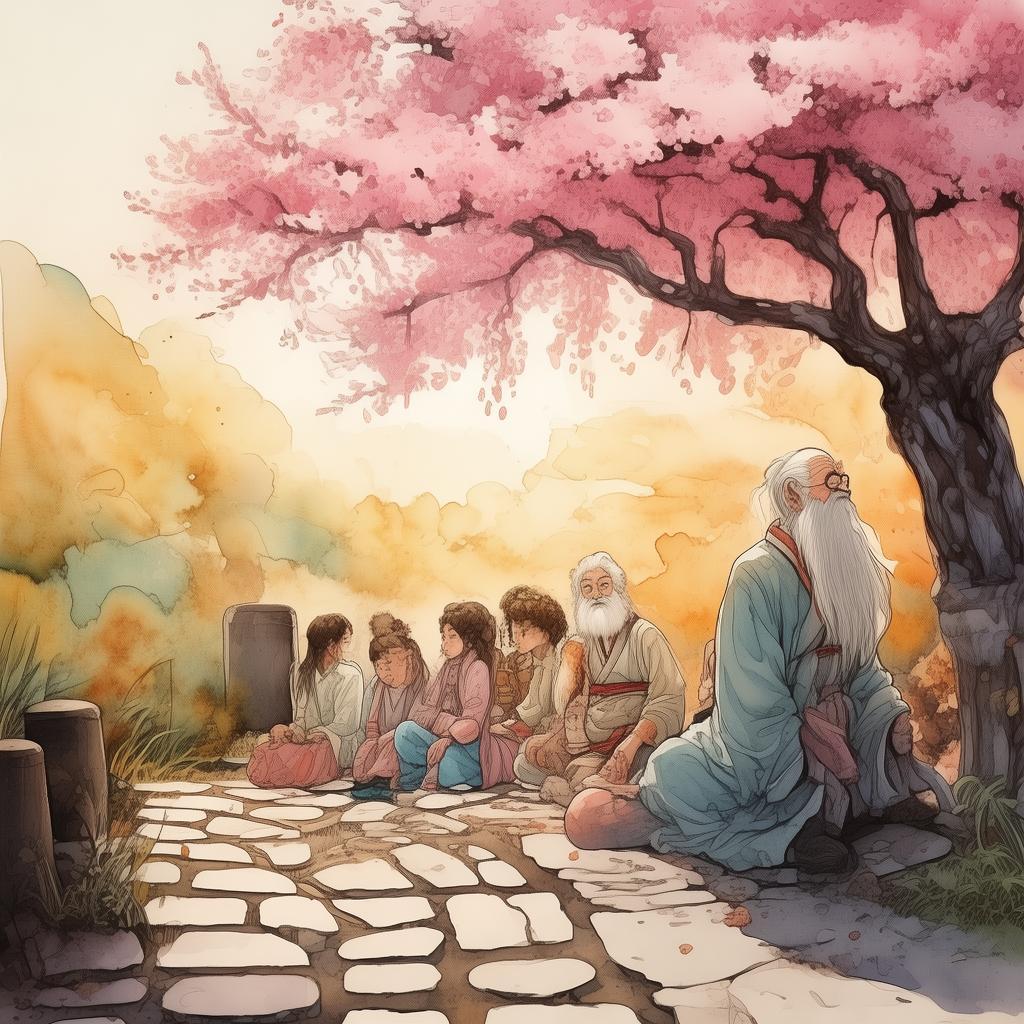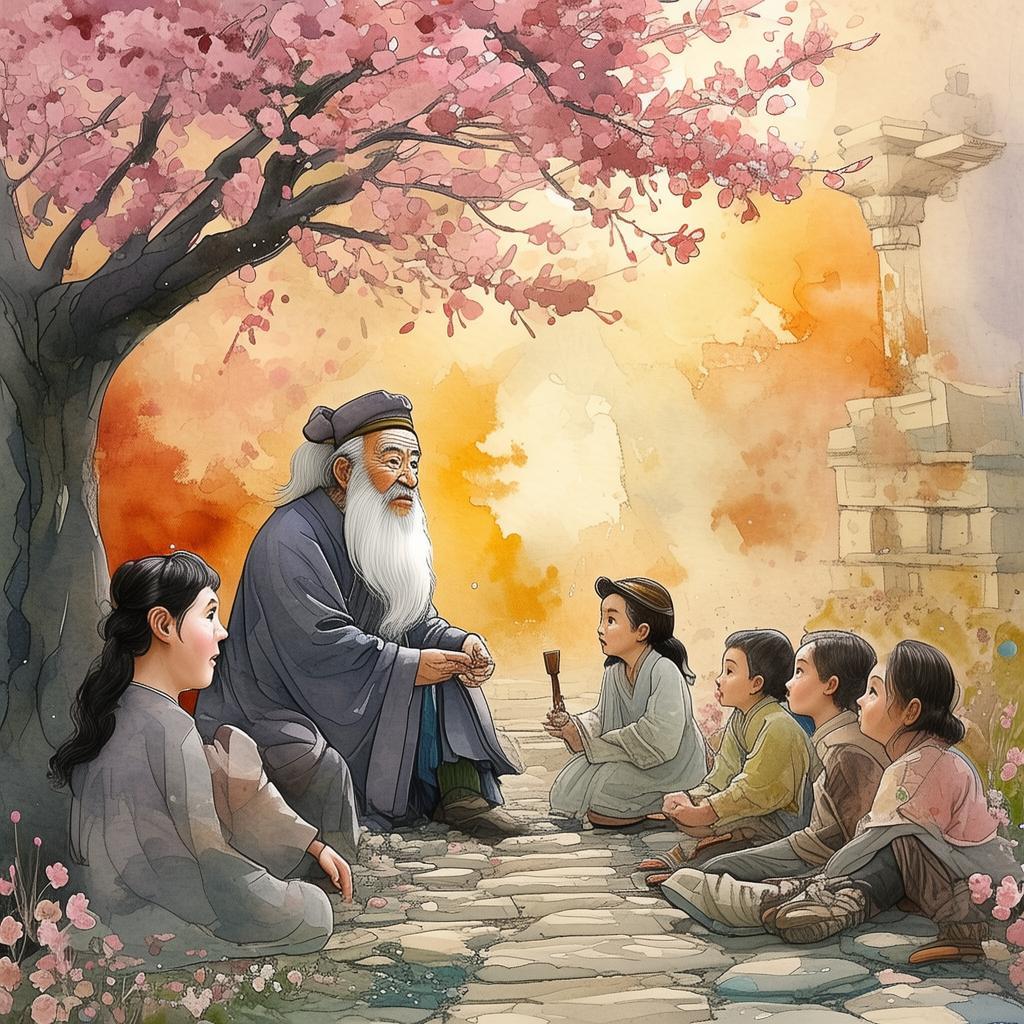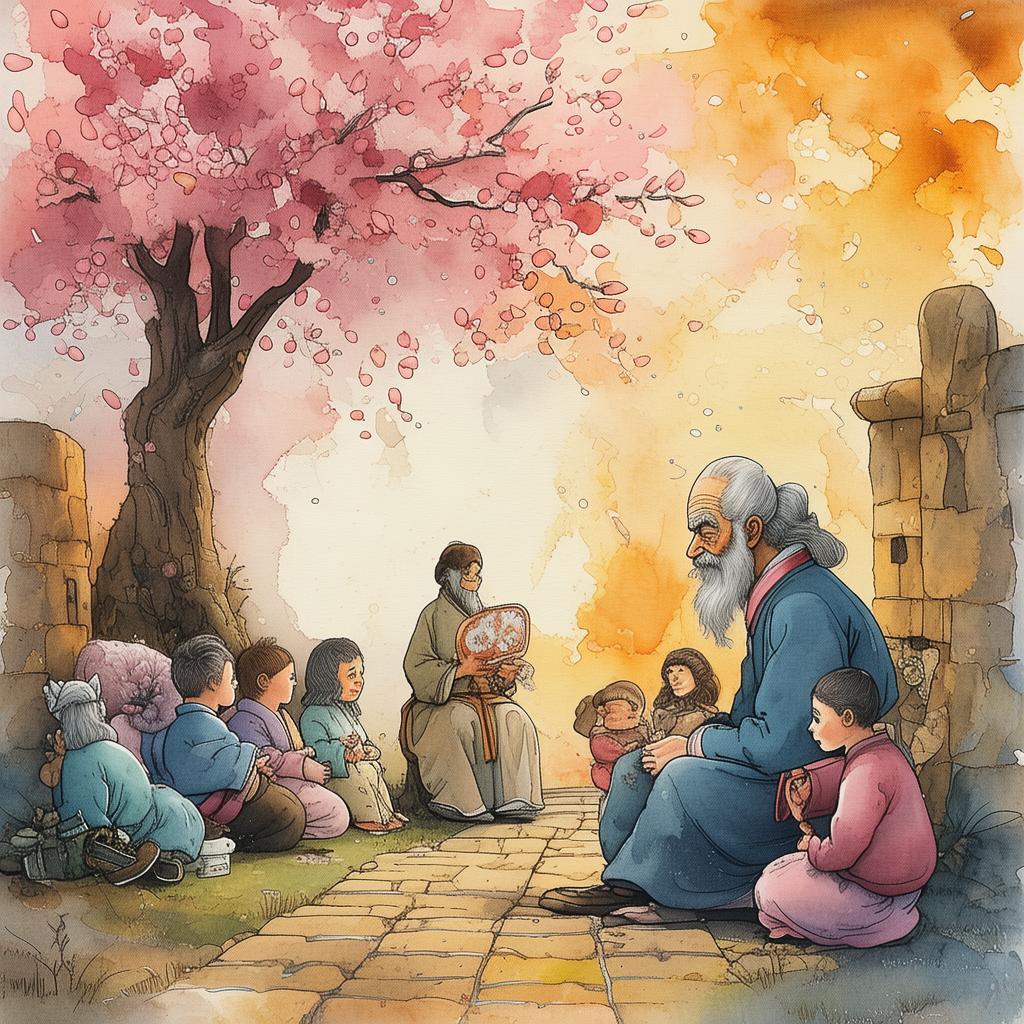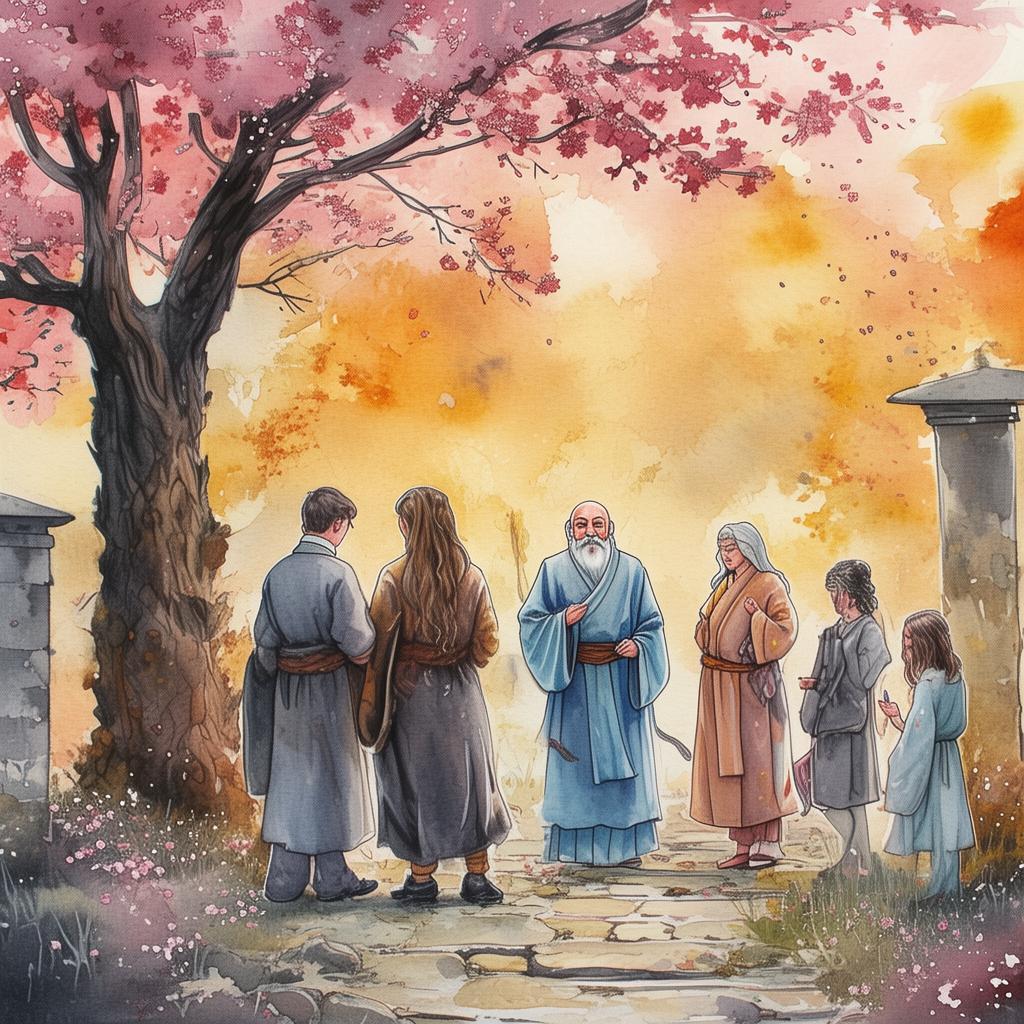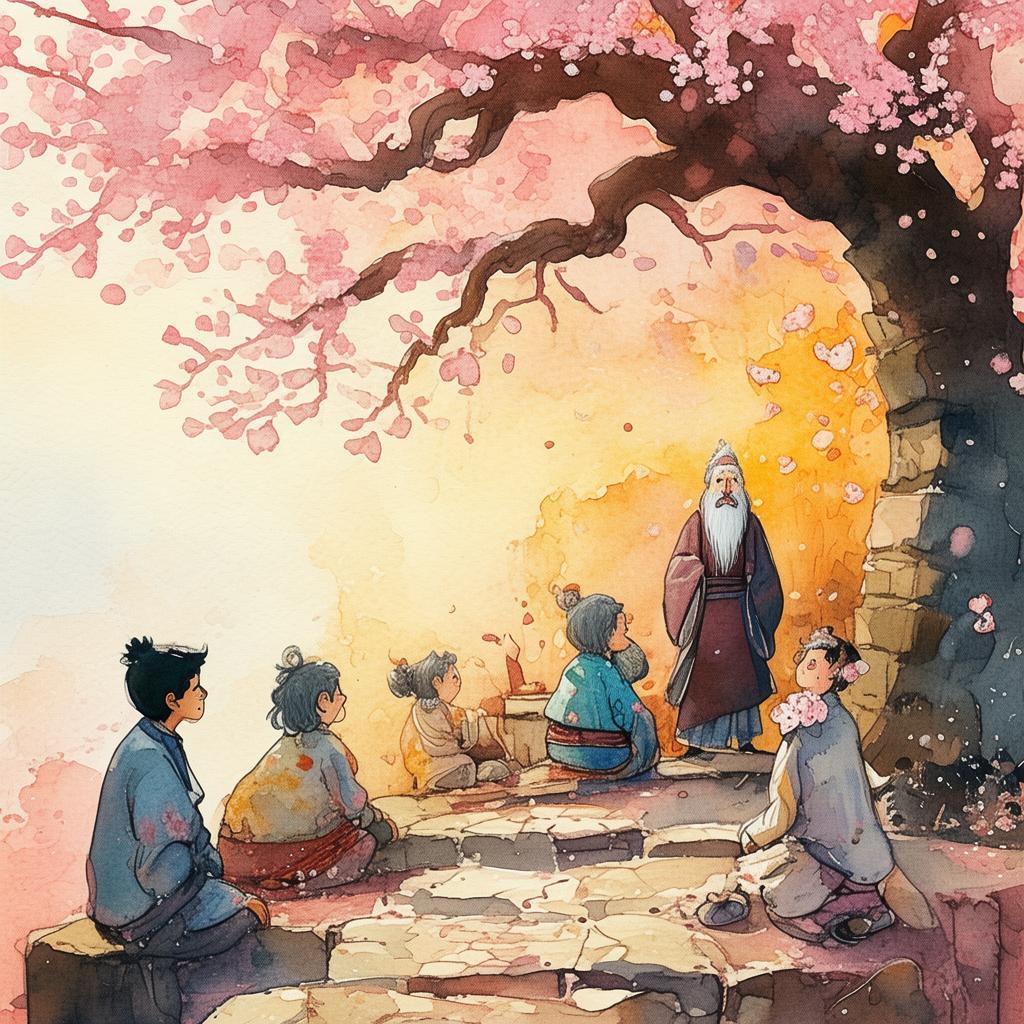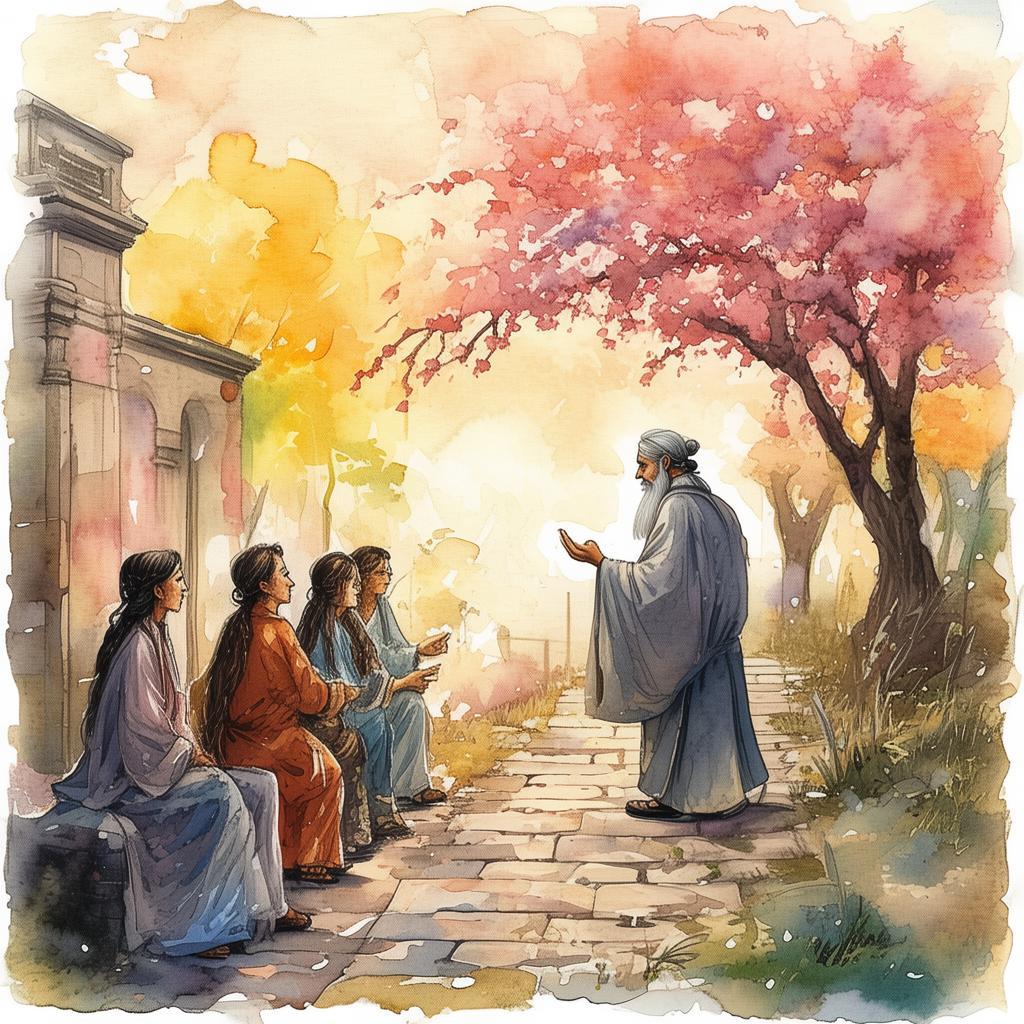Secrets of the Opera House
In the heart of the bustling city of Shanghai stood the magnificent Shanghai Grand Opera House, a beacon of art and culture that had been the pride of the city for decades. The opera house was home to the most renowned singers, among them a young and talented soprano named Liang Mei, known for her enchanting voice and fiery spirit.
Liang Mei was the star of the opera, captivating audiences with her performances that soared like the birds in the sky. She was also the secret keeper of the opera house, holding a key to a hidden chamber beneath the stage that contained the most precious artifacts and secrets of the house.
One evening, as Liang Mei prepared for her most anticipated performance of the year, she felt an unsettling presence. It was as if the walls were whispering secrets she dared not hear. Driven by a strange compulsion, she found herself descending into the hidden chamber, her heart pounding in her chest.
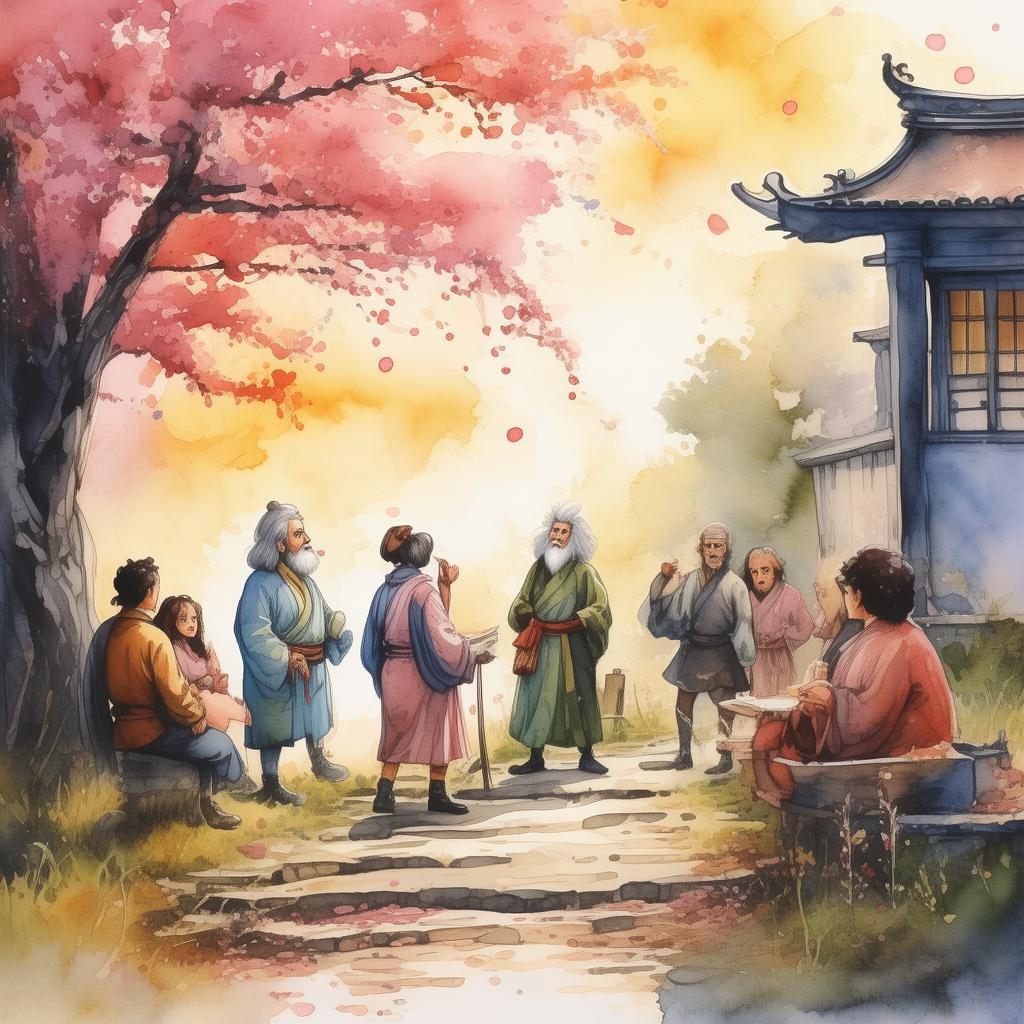
The chamber was a labyrinth of ancient tapestries and ornate furniture, the air thick with dust and mystery. Liang Mei's eyes widened as she noticed a series of enigmatic symbols etched into the floor. She traced them with her fingers, and to her astonishment, the floorboards began to shift, revealing a hidden door.
Behind the door was a room filled with scrolls and documents, the oldest of which detailed the history of the opera house and the lives of its founders. As Liang Mei delved deeper into the scrolls, she discovered a shocking revelation: the opera house was built upon the bones of a woman who had been betrayed and murdered by her own family.
The woman, known only as the "Silent Soprano," had been an opera singer of great renown, whose voice was said to be so powerful that it could move the mountains. But when her voice was used to bring down a corrupt nobleman, her family betrayed her, casting her body into the foundations of the opera house to silence her forever.
Liang Mei was mesmerized by the story, and as she read on, she found her own name mentioned in the final scroll. It revealed that the woman's spirit was bound to the opera house, and that only a true soprano with a pure heart could release her. Liang Mei felt a strange connection to the story, as if her destiny was intertwined with that of the Silent Soprano.
Determined to free the spirit, Liang Mei sought the help of her closest friend and confidant, Qiao, a young architect who had always been fascinated by the opera house's secrets. Together, they embarked on a quest to uncover the truth behind the Silent Soprano's betrayal.
Their investigation led them to the opera house's founding family, who had long since vanished. With the help of old records and interviews with surviving members of the family, they discovered that the betrayal had been orchestrated by the head of the family, who wanted to keep the Silent Soprano's voice from falling into the wrong hands.
As Liang Mei prepared for her performance, she felt the weight of the Silent Soprano's story pressing upon her. She knew that her voice was the key to releasing the spirit, but she also realized that her own life was in danger. The family would stop at nothing to keep the secret and silence her.
The night of the performance, Liang Mei stood on the stage, her voice filling the grand hall with its beauty and power. As she sang, she felt the spirit of the Silent Soprano moving through her, her voice becoming one with the woman's. In a moment of pure magic, the spirit was freed, and the opera house was filled with a strange, ethereal light.
The audience was left in awe, and as Liang Mei took her final bow, she knew that the Silent Soprano's story had finally been told. The opera house, once a place of secrets and shadows, was now a place of light and hope.
In the days that followed, Liang Mei and Qiao were hailed as heroes, their discovery changing the course of the opera house's history. Liang Mei continued to perform, her voice now even more powerful and resonant, a testament to the spirit of the Silent Soprano.
The Shanghai Grand Opera House was no longer just a place of beauty and culture; it was a place of remembrance, a testament to the power of truth and the enduring spirit of those who dared to sing their story.
✨ Original Statement ✨
All articles published on this website (including but not limited to text, images, videos, and other content) are original or authorized for reposting and are protected by relevant laws. Without the explicit written permission of this website, no individual or organization may copy, modify, repost, or use the content for commercial purposes.
If you need to quote or cooperate, please contact this site for authorization. We reserve the right to pursue legal responsibility for any unauthorized use.
Hereby declared.
